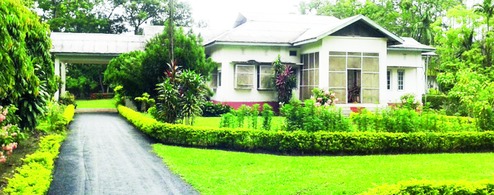
Guwahati: The 92-year-old Korangani tea estate, one of the oldest gardens in Assam, is up for sale.
A source said negotiations were under way but "nothing is final as of now".
"The reasons for selling the garden are purely economic. The prevailing state of the tea industry, which is bogged down by rising costs and, unremunerative prices, also reflects our situation," he said.
The garden is situated in the Rajgarh area of Dibrugarh district in Upper Assam and has its own packet tea brand, Korangani, which is doing well in the market.
The company website says in 1926, late Jadav Prasad Chaliha, freedom-fighter and a pioneer tea-planter of Assam, cleared a densely forested land, locally known as korangani because of the abundance of koranga tree, and filled it with tea plants.
"Battling the hardships of severe environment and colonial harassment, his determination bore fruit and the young plantation began to flourish," it adds.
The garden produces 11 lakh kg tea in its factory. Of this, its own crop is 6 lakh kg while the rest is bought from the market.
The development comes in the wake of 12 gardens of McLeod Russel in Upper Assam being sold to two companies - M.K. Shah Exports and Luxmi Tea - for Rs 472 crore, which is one of the biggest sale deals in the tea sector in recent years. The gardens of Assam Company are also under the hammer.
The source said the company would keep the Korangani brand name and buy tea from other gardens for its packets.
A tea industry official said the cost of production has been rising fast while prices remain subdued and unsupportive to the producers.
"Unless the prices being realised by the tea producers improve and provide adequate margin to cover costs and investments, it would be extremely difficult for the industry to remain sustainable," the official said.
Another official said the industry structure has undergone a paradigm shift with the growth of the small growers and bought leaf factory sectors accounting for almost 45 per cent of India's production. This has created two economic platforms for tea production with wide differences in the cost of production and economies of scale.
"While there is a wide variation in the cost of production of these two sectors, the average price realisation, which is governed by demand-supply, does not differentiate between the two products and is not compensating the higher costs incurred by the traditional sector, resulting in its unsustainability. The traditional sector also faces huge challenges in terms of absenteeism and low productivity," he said.











